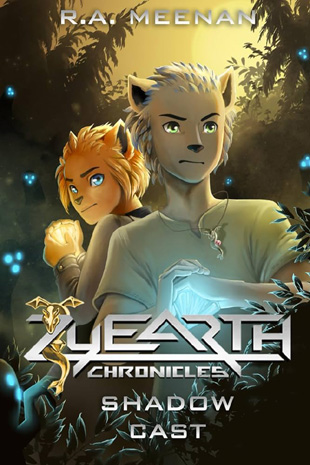artificial intelligence
Review: 'The Wild Robot'
Posted by 2cross2affliction on Wed 16 Oct 2024 - 08:05 Chris Sanders has only directed four animated features (plus a live action adaptation Call of the Wild), and the previous three (Lilo & Stitch, How to Train your Dragon and The Croods put him in four way tie for most nominations without a win in the Best Animated Feature category at the Oscars. It feels pretty certain that The Wild Robot will be the movie that finally wins him that Oscar, but we'll keep such speculation to a minimum.
Chris Sanders has only directed four animated features (plus a live action adaptation Call of the Wild), and the previous three (Lilo & Stitch, How to Train your Dragon and The Croods put him in four way tie for most nominations without a win in the Best Animated Feature category at the Oscars. It feels pretty certain that The Wild Robot will be the movie that finally wins him that Oscar, but we'll keep such speculation to a minimum.
Sanders's first feature, Lilo & Stitch, is probably the only truly great movie to come out of Walt Disney Animation Studios in the first decade of this century. (To be clear, you're allowed to like other movies from that decade, but most were flawed.) Anyway, the upshot of Lilo & Stitch becoming a beloved classic is that its directors, Sanders and his writing and directing partner, Dean Deblois, were driven out of Disney by John Lasseter a few years later (I don't like that guy).
Sanders and Deblois took their talents to DreamWorks Animation, where they delivered How to Train Your Dragon to the studio, often seen as one of the highlights of its output.
I've often seen Sanders cast as the "idea guy" in the Sanders/Deblois partnership, as well as being the guy who brings a lot of unique visual aspects to his projects, while Deblois is the more story-driven member of the partnership, bringing in the emotional aspects. I'm not so sure about that, especially after this movie, which features an emotional story just as potent as Lilo & Stitch and How to Train Your Dragon, sans Deblois. The Wild Robot also features a visual design that echoes the original illustrations of the book it's based on, by Peter Brown, showing Sanders is more than just a recognizable art style.
Rise Up, Defenders
Posted by Mink on Sun 21 Apr 2024 - 01:54Later on at Golden State Fur Con we met R. A. Meenan, author of the Zyearth Chronicles series of books. Which go like this, according to the web site: “A magepunk world with magic gems, dragon A.I.s, anthropomorphic characters, supernatural summons, magic mobs, time travel, war, deep platonic friendship, hints of romance, characters all over the LGBTQ+ spectrum, and creative swearing!” Which sounds like a great place to start! Shadow Cast is the first book in the series, and details for all four can be found at the web site.

image c. 2024 zyearth.com
Mary E. Lowd defrocked as Furlandia guest of honor for embracing AI art
Posted by Sonious on Tue 27 Feb 2024 - 22:47 Furlandia announced on February 23 that Ursa Major Award-winning furry author Mary E. Lowd was removed as a guest of honor, citing her use of artificial intelligence to create her work’s cover art and the ensuing backlash.
Furlandia announced on February 23 that Ursa Major Award-winning furry author Mary E. Lowd was removed as a guest of honor, citing her use of artificial intelligence to create her work’s cover art and the ensuing backlash.
Despite the strong response to her use of AI, the announcement’s second paragraph seemed to suggest that Furlandia is neutral on AI art itself:
Dear Furlandia Community,
Earlier this week we made the difficult decision to remove our Writing Guest of Honor for 2024, Mary E. Lowd. This is a decision we do not make lightly, and is all the more difficult for us as they have been a long time supporter of Furlandia. So why have we done this? It comes down to their decision to use AI-generated art as a tool in the creation of things such as book covers, the professional backlash that has accompanied it, and the general attitude towards this topic in the fandom.
Undoubtedly the topic of AI-generated art is incredibly divisive and controversial in our fandom at this time, and a lot of people have very strong opinions about it. We’ve made this decision not to push a particular opinion, but because our goal is to bring people together to celebrate the furry fandom, of which artists are the undeniable backbone. Continuing with Mary as a [Guest of Honor] would have made the people understandably uncomfortable and that’s not something we want. This is not an easy thing for any convention to have to do and we hope anyone who’s disappointed will understand.
Thank you,
Furlandia Executive Staff
AI Art Part 2: What kind of world do we want?
Posted by Rakuen Growlithe on Tue 14 Feb 2023 - 20:20In the second part of this piece, we will consider the rise of AI-generated art from a more subjective point of view, focusing on its ethical and societal implications. In the first part found here, we went over why AI models do not store and reproduce exact copies of the artworks they have been trained on.
Thank you to 'Yote, who has a PhD in computational biology, for providing feedback and fact-checking for this article.
AI Art Part 1: How it works
Posted by Rakuen Growlithe on Wed 8 Feb 2023 - 14:16If you have any involvement with the furry fandom – and if you're reading this, you probably do – you will have seen a lot of talk about Artificial Intelligence (AI) over the past few weeks/months, particularly about AI-generated art. What you'll also have seen is that most of this talk has been characterised by fear and anger. Several furry websites and organisations, such as Inkbunny, Fur Affinity and the Furry Writers' Guild, have all issued statements or updated their policies to ban AI-generated content or aspects thereof.
As a largely artistic community and given that AI-generated content threatens the status quo, this is completely understandable. The objections to AI art have been numerous; some rely on nebulous and abstract concepts such as AI art being emotionless, some consider it unfair to artists who have put effort into learning their skills and others have chosen to focus on the economic aspects of competing against AI. Anti-AI sentiment has grown in the art community and spilled off of the internet in the form of legal challenges against several companies involved in providing AI art services.
It would be out of scope of this text to address every single argument for or against AI. Instead, I would like to focus on two aspects of the debate; one which is objective and one which is subjective. The first, objective, aspect is what AI is and how it works. This is important because it's difficult to have a proper discussion about the technology when it is misunderstood – and I think that most discussion around AI fundamentally misunderstands how it works. The second, subjective, aspect involves copyright and the ethics of training AI. This is a question about the sort of world in which we wish to live and how we should treat one another. I feel that these two questions are the most important ones for deciding how AI will fit into our world. Hopefully, I can correct some misconceptions about how AI works and put forward a view of the world which others will find appealing as well.
Due to the length of this article, it has been split in two. The second part will address the social and ethical aspects of AI-generated art.
Thank you to 'Yote, who has a PhD in computational biology, for providing feedback and fact-checking for this article.